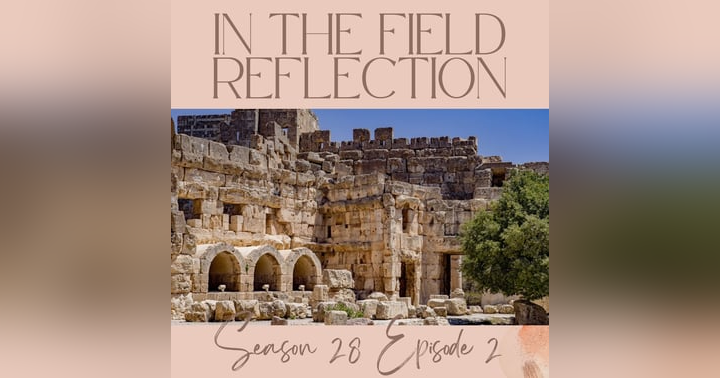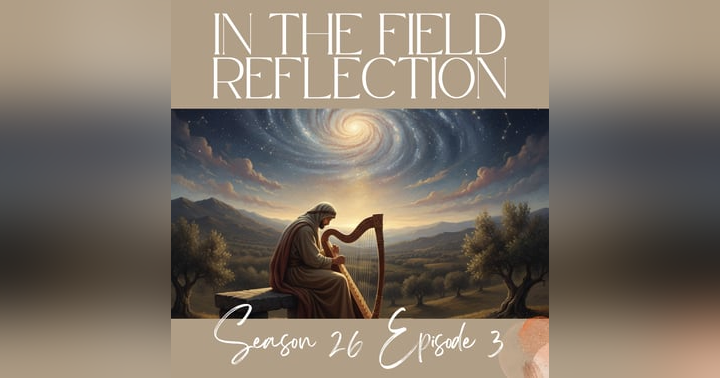Tree Doesn't Blossom: Habakkuk's Journey from Questions to Trust

The journey through Habakkuk's final prayer reveals one of the most profound transformations in scripture—from a questioning prophet to a man of unshakable faith. This remarkable shift offers us a blueprint for moving from questions to trust as we navigate our own spiritual doubts and trials in today's uncertain world.
Throughout the first two chapters, Habakkuk had boldly questioned God's justice, wondering how a holy God could use the wicked Babylonians to punish His own people. His questions weren't blasphemous but honest wrestling with divine purpose amidst apparent contradiction. Many believers today find themselves in similar positions, watching injustice prevail while heaven seems silent, questioning where God is in the suffering.
What makes Habakkuk's third chapter so revolutionary is not that his circumstances changed, but that his perspective transformed entirely. Through a divine encounter, he received a breathtaking vision of God's majesty and power. Habakkuk saw beyond the immediate crisis to recognize God's sovereignty extending through history. This vision didn't provide all the answers he sought, but it revealed something far more valuable – a glimpse of who God truly is beyond human understanding.
The prophet describes God's appearance in cosmic, earth-shaking imagery: "His glory covered the heavens and the earth was full of His praise." This language evokes the exodus and God's historical deliverances, reminding Israel that the same God who had saved them before remained sovereign now. The mountains trembled, the waters roared, and the sun and moon stood still in their places – creation itself acknowledging its Creator's might. This vision reframes Habakkuk's perspective from focusing on temporal sufferings to eternal truths.
Perhaps the most remarkable aspect of this transformation is found in the closing verses, where Habakkuk makes what scholars often call "the prophet's declaration of faith." Despite facing complete agricultural devastation – no figs, no fruit, no olive harvest, no crops, no flocks, no herds – which meant economic collapse and potential starvation in an agrarian society, Habakkuk chooses joy. "Yet I will rejoice in the LORD, I will take joy in the God of my salvation."
This statement represents faith at its purest: trusting God not for what He provides but for who He is. Habakkuk realizes that God Himself is the ultimate blessing, regardless of circumstances. His joy doesn't depend on external conditions but springs from an unshakable relationship with the Sovereign Lord. This radical stance challenges our often transactional approach to faith, where we measure God's goodness by our comfort and prosperity.
The prophet concludes with a beautiful metaphor: "He makes my feet like the deer's, He makes me tread on my high places." Deer are known for their remarkable ability to navigate treacherous mountain terrain with agility and confidence. Similarly, God enables His people to traverse difficult paths with surprising grace. The heights represent both danger and vantage point – from there, perspective changes, and what seems overwhelming in the valley takes on new meaning from above.
For today's believers facing uncertainty, Habakkuk offers profound wisdom: questions aren't failures of faith but often the beginning of deeper trust. Authentic faith isn't the absence of doubt but the presence of trust despite unanswered questions. True joy isn't contingent on favorable circumstances but on the unchanging character of God. And lasting strength comes not from having every answer but from knowing the One who holds all things together.
As we navigate our own valleys – whether pandemic aftermath, economic instability, personal loss, or spiritual drought – Habakkuk's journey invites us to lift our eyes beyond our immediate circumstances to the God who transcends them. When our fig trees don't blossom and our vines bear no fruit, we too can make the radical choice to rejoice, not because of what we see, but because of who we know. This is faith's triumph – finding joy not in the gifts but in the Giver, not in the blessings but in the Blesser himself.



